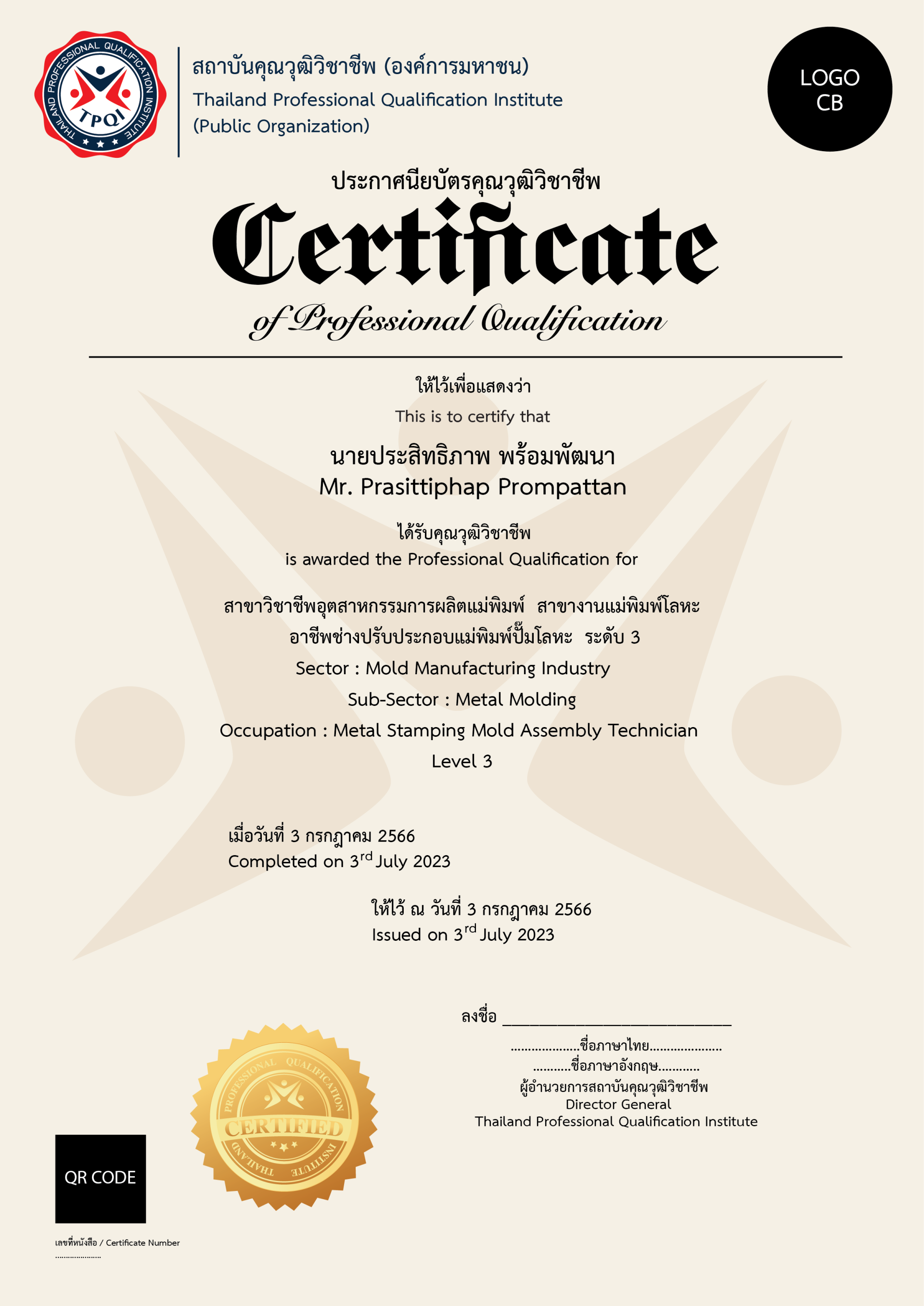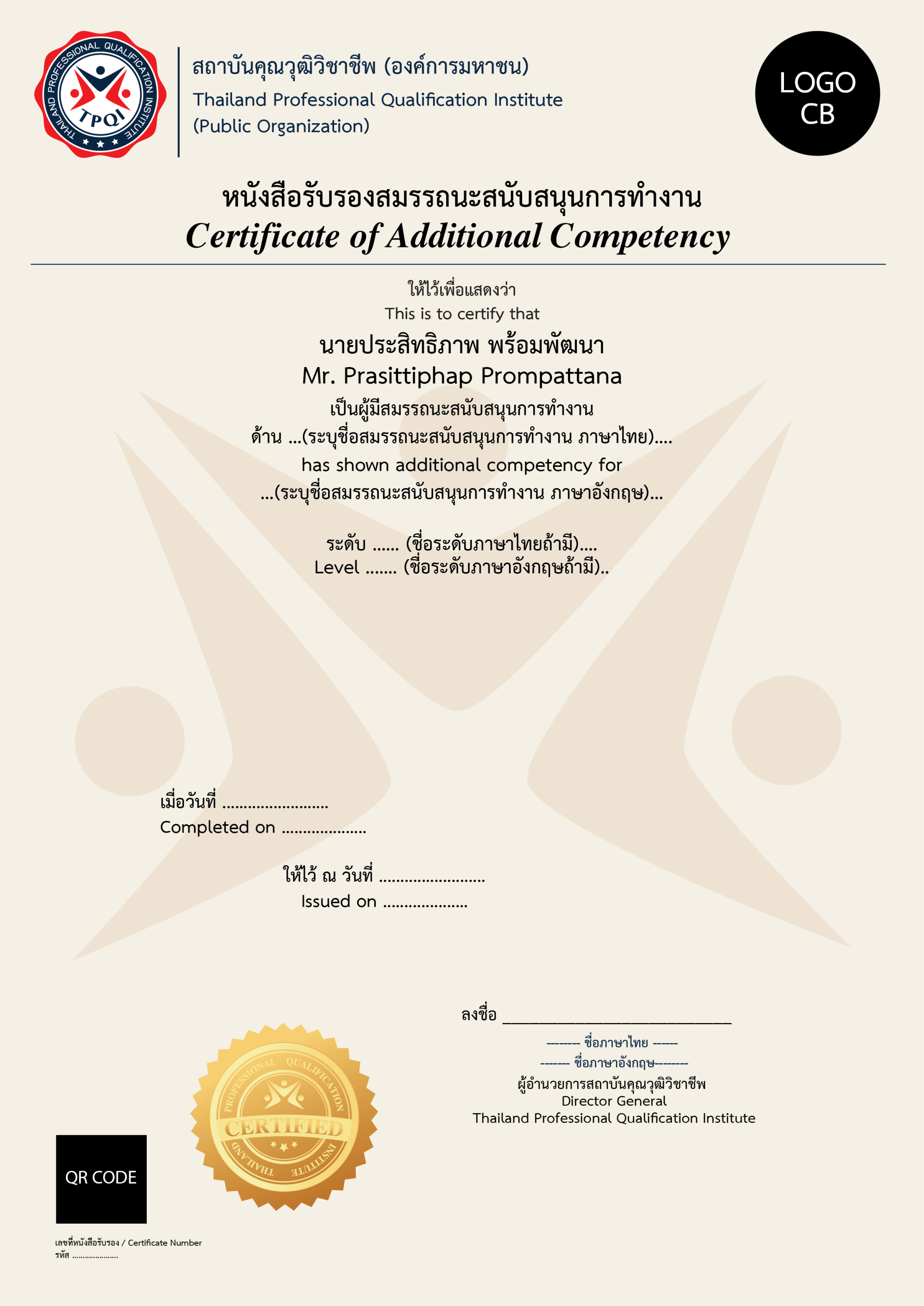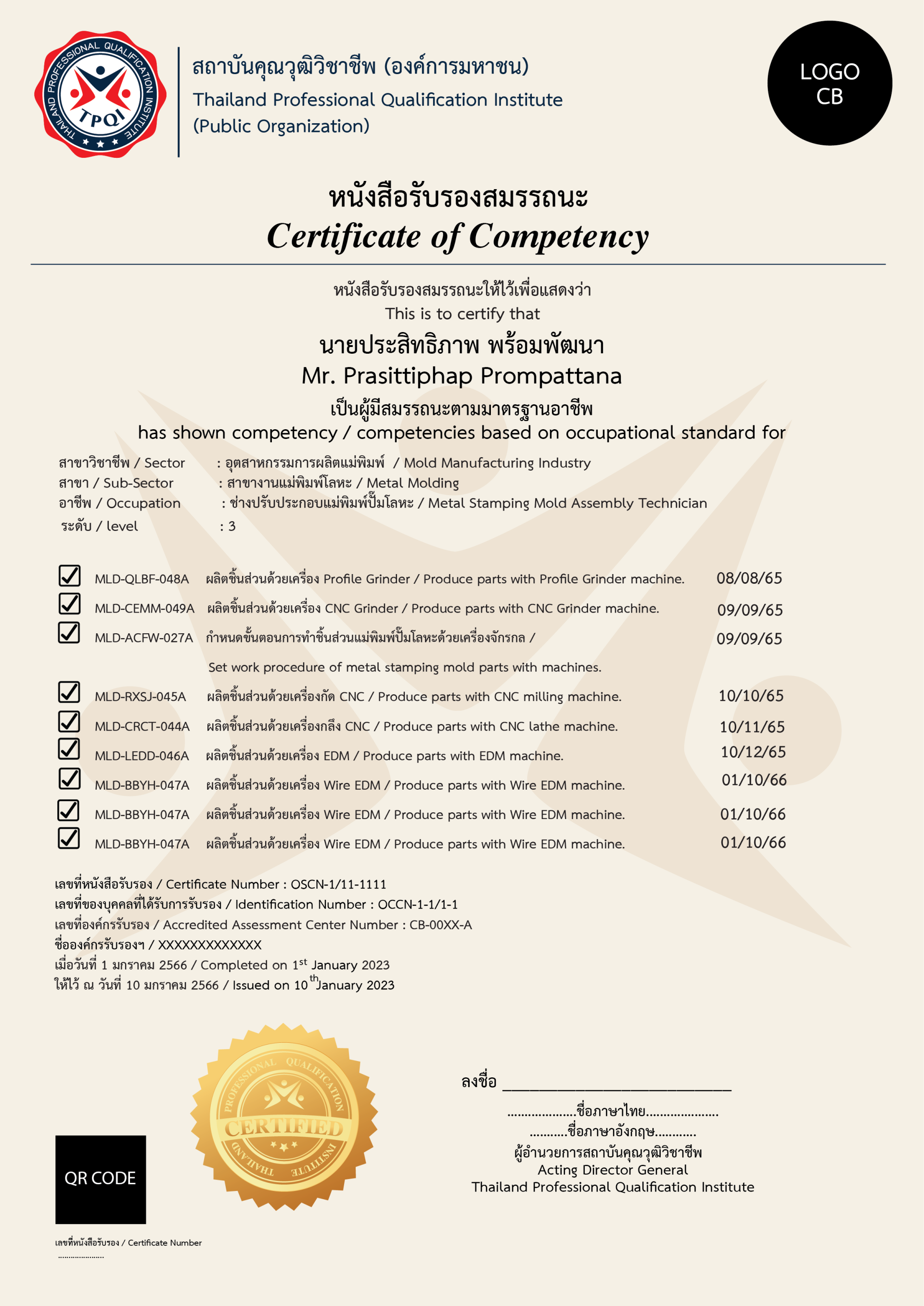Professional Qualification and Occupational Standards
The Importance of the Professional Qualifications System
In the world of work, it requires not only knowledge, but also a variety of skills and expertise gained through practical work experience and training. All professionals, whether they possess formal qualifications in their fields or not, can develop their abilities in various aspects of their jobs. The application of knowledge, skills, and abilities to carry out a profession is referred to as "competency." Each field consists of many professions, and each profession has many tasks and requires a wide range of competencies to perform effectively.
The Thailand Professional Qualification Institute (Public Organization) is the main agency responsible for developing the professional qualifications system that leads to career advancement and productivity enhancement. Realizing the needs and importance of establishing workforce development strategies, the Institute, in collaboration with industries and stakeholders, define the competencies required by industries in order to develop "Occupational Standards." These standards define the required competency levels for individuals in their respective professions and assess their skills and expertise systematically. Such certification of individuals’ competencies is “Professional Qualifications.”
Professional Qualifications refer to the recognition of an individual's knowledge, skills, and competencies according to occupational standards. Professional Qualifications are particularly beneficial to the majority of the workforce, who may lack formal higher education qualifications but possess significant experience and expertise in their professions.
Understanding the Professional Qualifications System
The primary objective of the "Professional Qualifications System" is to certify the "competencies" of the workforce according to Occupational Standards. The standards are developed in response to skills demands of businesses and industries. The "Professional Qualifications System" certifies individual's knowledge, skills, and abilities and grant them "Professional Qualifications" according to their levels of competencies, experiences, and knowledge. Professional Qualifications support individuals’ future career development. Additionally, the "Professional Qualifications" can be compared and linked to other national qualifications.
Professional Qualifications Framework: 8 Levels
The Professional Qualifications Framework has been developed as a criterion for determining the levels of Professional Qualifications based on competency levels specified in the Occupational Standards. Each level of the framework outlines the desired knowledge, skills, and attributes, as well as the scope of responsibilities, expected outcomes from task performance, innovation, and the complexity of work involved.
The lower-level Professional Qualifications may focus on the ability to perform tasks according to established criteria, while higher-level qualifications emphasize the capacity to create innovations, new methods, or technologies within one's profession. The criteria and descriptions within the Professional Qualifications Framework define the level of competencies, scope of responsibilities, expected outcomes, work complexity, and innovation. The framework descriptors are applicable to all occupations and are not specific to a particular occupation. This will enhance Professional Qualifications and workforce development in Thailand, making it more competitive within the ASEAN Economic Community and globally.
The Professional Qualifications Framework serves as a key tool for evaluating and certifying individuals' competencies based on the Occupational Standards and meeting the skills needs of businesses and industries. Additionally, it functions as a mechanism for linking and comparing with national and international educational qualification systems.









